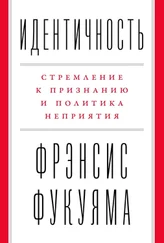5. Ali Alichi, Kory Kantenga, and Juan Sol., «Income Polarization in the United States,» IMF Working Paper WP/16/121 (Washington, DC, 2017); Thomas Piketty and Emmanuel Saez, «Income Inequality in the United States, 1913–1998,» Quarterly Journal of Economics 118 (1) (2003): 1–39.
6. Viktor Orbán, «Will Europe Belong to Europeans?» речь в Бэиле-Тушнаде, Румыния, 22 июля 2017 г. Visegrád Post , July 24, 2017, https://visegradpost.com/en/2017/07/24/full-speech-of-v-orban-will-europe-belong-to-europeans/.
7. Rukmini Callimachi, «Terrorist Groups Vow Bloodshed over Jerusalem. ISIS? Less So,» The New York Times , December 8, 2017.
8. Orbán, «Will Europe Belong to Europeans?»
9. James D. Fearon, «What Is Identity (As We Now Use the Word)?» неопубликованная статья, November 3, 1999, http://fearonresearch.stanford.edu/53–2.
Глава 2. Третья часть души
1. Daniel Kahneman, Thinking, Fast and Slow (New York: Farrar, Straus and Giroux, 2013) [47].
2. The Republic of Plato , trans., with notes and an interpretive essay, by Allan Bloom (New York: Basic Books, 1968), variorum sec. 439b-c [48].
3. Там же, 439e-440a.
4. Там же, 440a-b.
5. Там же, 440e-441a.
6. Изложение того, как изотимия проявляется на практике, см. в: Robert W. Fuller, Somebodies and Nobodies: Overcoming the Abuse of Rank (Gabriola Island, British Columbia: New Society Publishers, 2003).
7. Robert H. Frank, Choosing the Right Pond: Human Behavior and the Quest for Status (Oxford: Oxford University Press, 1985), 7.
Глава 3. Внутреннее и внешнее
1. G. R. Elton, Reformation Europe , 1517–1559 (New York: Harper Torchbooks, 1963), 2.
2. Martin Luther, Christian Liberty , ed. Harold J. Grimm (Philadelphia: Fortress Press, 1957), 7–8.
3. Charles Taylor, Sources of the Self: The Making of the Modern Identity (Cambridge, MA: Harvard University Press, 1989), 18.
4. Elton, Reformation Europe , 196.
5. См. Taylor’s Sources of the Self and Multiculturalism: Examining the Politics of Recognition (Princeton, NJ: Princeton University Press, 1994).
6. См. Arthur M. Melzer, The Natural Goodness of Man: On the System of Rousseau’s Thought (Chicago: University of Chicago Press, 1990).
7. Jean-Jacques Rousseau, Oeuvres complètes de Jean-Jacques Rousseau , vol. 3 (Paris: Éditions de la Pléiade, 1966), 165–166.
8. Там же, 165.
9. Jean-Jacques Rousseau, Les rêveries du promeneur solitaire (Paris: Éditions Garnier Frères, 1960), 17.
10. Charles Taylor, The Ethics of Authenticity (Cambridge, MA: Harvard University Press, 1992), 26.
11. Представление Руссо о том, что для первобытных людей был естественным секс, но не семья, похоже, не соответствует современным поведенческим предпочтениям людей. Оно верно, однако, в отношении современных шимпанзе и вполне может быть верно в отношении предполагаемого шимпанзеподобного прачеловека, прародителя человека современного.
12. Более подробно эта тема освещена в книге «Государственный порядок» (см. Fukuyama, Origins of Political Order , 26–38).
13. Frank, Choosing the Right Pond , 21–25.
Глава 4. От достоинства к демократии
1. Alexandre Kojève, Introduction à la lecture de Hegel (Paris: Éditions Gallimard, 1947).
Глава 6. Экспрессивный индивидуализм
1. Rex Glensy, «The Right to Dignity,» Columbia Human Rights Law Review 43 (65) (2011): 65–142.
2. Samuel Moyn, «The Secret History of Constitutional Dignity,» Yale Human Rights and Development Journal 17 (2) (2014): 39–73. Термин «достоинство» упоминался и в дискуссиях об абортах, поскольку католическая церковь утверждала, что человеческое достоинство возникает с момента зачатия и представляет собой неприкосновенный моральный статус.
3. Гленси («Right to Dignity,» 77) отмечает, что слово «достоинство» было упомянуто в первом номере альманаха Federalist (Гамильтоном), но только в связи со статусом высших чиновников.
4. Taylor, Ethics of Authenticity , 29.
5. David F. Strauss, The Life of Jesus, Critically Examined (London: Chapman Brothers, 1846).
6. Дело «Planned Parenthood of Southeastern Pennsylvania v. Casey, 505 U.S. 833».
Глава 7. Национализм и религия
1. Johann Gottfried von Herder, Reflections on the Philosophy of the History of Mankind (Chicago: University of Chicago Press, 1968).
2. Там же, 31.
3. Гердер не был горячим поклонником абсолютистских монархий своего времени и не верил, что они более соответствуют человеческому счастью, чем «безгосударственные» общества Северной Америки или Африки. См. Johann Gottfried von Herder, J. G. Herder on Social and Political Culture (Cambridge: Cambridge University Press, 1969), 318–319.
4. Ernest Gellner, Nations and Nationalism (Ithaca, NY: Cornell University Press, 1983), 33, 35.
5. Fritz Stern, The Politics of Cultural Despair: A Study in the Rise of German Ideology (Berkeley: University of California Press, 1974), 19–20.
6. Там же, 35–94 в различных местах.
7. Olivier Roy, «France’s Oedipal Islamist Complex,» Foreign Policy , January 7, 2016; Olivier Roy, «Who Are the New Jihadis?» The Guardian , April 13, 2017.
8. Richard Barrett, Foreign Fighters in Syria (New York: Soufan Group, 2014).
9. См. Omer Taspinar, «ISIS Recruitment and the Frustrated Achiever,» The Huffington Post , March 25, 2015.
10. Gilles Kepel, Terror in France: The Rise of Jihad in the West (Princeton, NJ: Princeton University Press, 2017); Robert F. Worth, «The Professor and the Jihadi,» The New York Times , April 5, 2017; Robert Zaretsky, «Radicalized Islam, or Islamicized Radicalism?» Chronicle of Higher Education 62 (37) (2016).
Читать дальше
Конец ознакомительного отрывка
Купить книгу







![Фрэнсис Крик - Что за безумное стремленье! [litres]](/books/398003/frensis-krik-chto-za-bezumnoe-stremlene-litres-thumb.webp)




